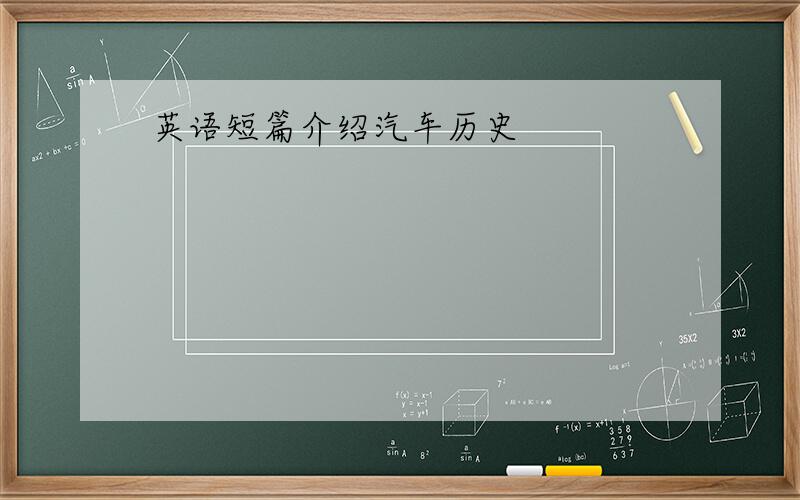英语短篇介绍汽车历史
来源:学生作业帮助网 编辑:作业帮 时间:2024/04/30 18:41:38

英语短篇介绍汽车历史
英语短篇介绍汽车历史
英语短篇介绍汽车历史
Timothy R.Whisler,The British Motor Industry,1945-1994:a case study in industrial decline,Oxford University Press,Oxford (1999),428 pp.,L60.00.
The decline of the motor industry is one of the great puzzles in Britain's post-war economic history.At the end of the 1930s the industry was slightly larger than its French and German counterparts,and at least on a par with them in terms of managerial and technical competence.All three were far behind the American manufacturers in scale and productivity,not least because the European market,fragmented by tariffs,did not permit high-volume,standardised production.All three would have an equal chance to catch up when market conditions became more favourable,as they did after the second world war.Why,then,did the British do so badly?
Timothy Whisler's answer to this question,based on an exhaustive study of the archives of the companies concerned and on interviews with some of the leading personalities,is institutional rigidity.The British-owned car manufacturers - principally British Motor Corporation (BMC),Rover,Standard-Triumph and Rootes - were stuck with a way of doing things which had served them well in the inter-war period but was totally unsuited to the more competitive climate of the 1960s and 1970s.`Management and labour were unable and unwilling to adapt their corporate strategies,institutions and beliefs to the changing demands of the post-war environment.'